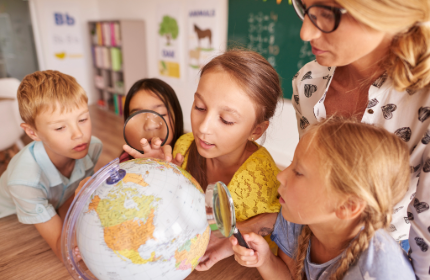Empowering the Future: How Education Transforms Lives of Children Globally
Empowering the Future: How Education Transforms Lives of Children Globally
Education is a powerful tool that has the ability to transform the lives of children worldwide. It not only equips them with knowledge and skills but also empowers them to break barriers, promotes inclusivity, and shapes the future. In this article, we will explore the power of education in transforming the lives of children, breaking barriers to provide accessible education, promoting inclusive learning environments, and empowering the next generation.
The Power of Education: Transforming Lives of Children Worldwide
Education has the power to change lives, providing children with the opportunity to escape poverty, improve their health, and build a better future. According to UNESCO, every additional year of schooling can increase an individual’s earnings by 10%. Education not only enhances economic prospects but also improves overall well-being. It reduces child mortality rates, improves maternal health, and helps combat diseases such as HIV/AIDS.
For instance, in Sub-Saharan Africa, where access to education is limited, investing in education has shown significant positive impacts. According to the World Bank, increasing the average number of years of schooling by just one year can increase a country’s GDP by 0.37%. This demonstrates the transformative power of education in lifting individuals and communities out of poverty.
Breaking Barriers: Empowering Children through Accessible Education
Despite the transformative power of education, many children around the world still face barriers to accessing quality education. Poverty, gender inequality, conflict, and disability are some of the factors that hinder children from receiving an education. It is crucial to break these barriers and ensure that education is accessible to all.
One example of breaking barriers is the “One Laptop per Child” initiative, which aims to provide affordable laptops to children in developing countries. This initiative has helped bridge the digital divide and provided access to educational resources for children who would otherwise have limited opportunities for learning.
Furthermore, organizations like UNICEF and Save the Children work tirelessly to provide education in conflict-affected areas. They establish temporary schools, train teachers, and provide learning materials to ensure that children affected by war and displacement can continue their education. These efforts are crucial in empowering children and giving them hope for a better future.
Education for All: Promoting Inclusive Learning Environments
Inclusive education is essential in ensuring that every child, regardless of their background or abilities, has access to quality education. It promotes diversity, fosters empathy, and prepares children for a globalized world. Inclusive learning environments benefit not only children with disabilities but also their peers, who learn to appreciate differences and develop a sense of empathy and acceptance.
For example, the United Nations Sustainable Development Goal 4 aims to ensure inclusive and equitable quality education for all. This goal emphasizes the importance of inclusive education in promoting social cohesion and reducing inequalities. Inclusive schools provide necessary accommodations and support systems to ensure that children with disabilities can fully participate in the learning process.
Empowering the Next Generation: The Role of Education in Shaping the Future
Education plays a crucial role in shaping the future by empowering the next generation with the knowledge, skills, and values needed to tackle global challenges. It equips children with critical thinking, problem-solving, and communication skills, enabling them to become active and engaged citizens.
Moreover, education fosters creativity and innovation, which are essential for addressing complex issues such as climate change, poverty, and inequality. By providing children with a solid educational foundation, we are nurturing future leaders, scientists, and change-makers who will drive progress and create a better world.
In conclusion, education has the power to transform the lives of children globally. It breaks barriers, promotes inclusivity, and empowers the next generation. By investing in education and ensuring its accessibility for all children, we can create a brighter future where every child has the opportunity to thrive and contribute to society. As Nelson Mandela once said, “Education is the most powerful weapon which you can use to change the world.”




